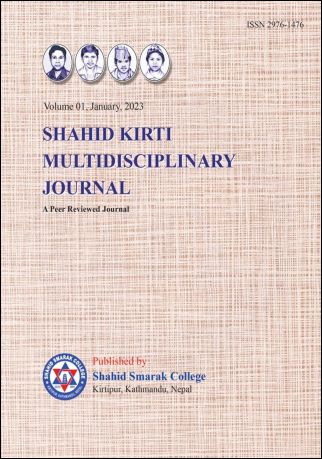Role of Mythical Heroic Narratives in Parenting of Nepal
DOI:
https://doi.org/10.3126/skmj.v1i1.60499Keywords:
S/hero, myth, gender, didactic, aesthetic, narratives, parenting, continuity, change, moralAbstract
Myths and stories are an indispensable part of Nepali society. In this study, I explore the socio-psychological role of mythical heroic narratives in parenting of Nepal. Mythical heroic characters play a major role in developing the initial conscience of young children. Myths are often the first abstract concepts introduced to the children and are done so frequently. Thus, such stories have a lasting impact on the child’s psyche and seem to affect the child until they are old, thereafter passing on the stories to their grandchildren. The purpose of the study is to explore the constructive role of mythical heroic narratives in parenting and articulating those ideas in their child development in Nepal. The research is based on constructive, interpretative qualitative ideas of KII with open-ended questionnaires using purposive sampling and in-depth interviews used as tools and techniques to acquire data. The findings showed that mythical stories have a huge importance in child upbringing in Nepali society. There are ranges of stories told for multifaceted purposes- using fear for disciplining the kids, creating the fun environment, and relationship building, among others. Mythical heroes in the stories seem to have distinct traits and have an aesthetic and didactic purpose based on the intention of continuity of mythical heroic narratives and structures. These also play a part in changing the socio-psychological dimensions of individuals. Hence, the mythical stories are important in child upbringing and development in the Nepali context. These stories are told across cultures, areas, gender and ethnicities, yet carry similar messages of changes of hope and sincerity towards structural values in an individual.




